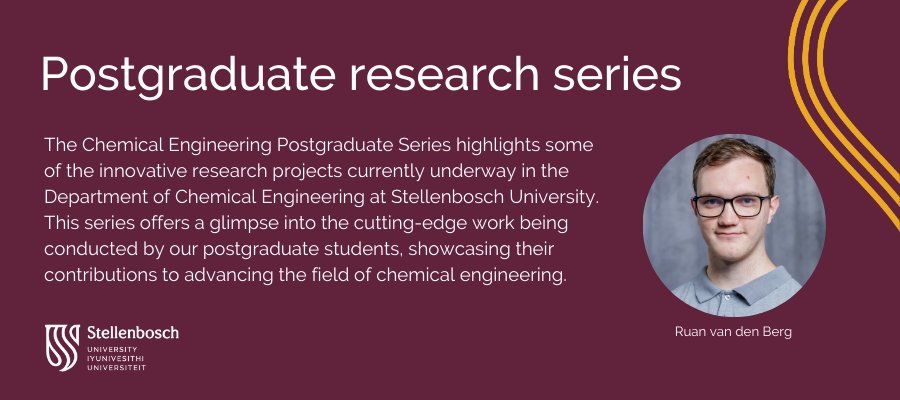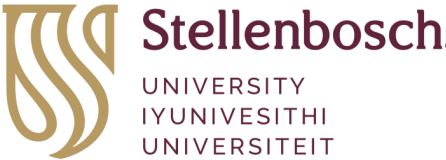
Ruan van den Berg, a master’s student in the Machine Learning research group at the Department of Chemical Engineering at Stellenbosch University, is conducting research to improve the efficiency of wastewater treatment plants (WWTPs) using advanced modelling techniques. His work aims to enhance the activated sludge process, which is essential for treating wastewater effectively in both domestic and industrial settings. The project has several key objectives:
- Implement and validate a mechanistic WWTP model in Python: Ruan has developed a Python-based implementation of the Activated Sludge Model No. 3 (ASM3), which estimates the reactions of various biological compounds involved in the activated sludge process. This model is validated against existing software to ensure its accuracy and reliability.
- MCMC sampling for parameter estimation: The research utilises Markov Chain Monte Carlo (MCMC) methods to estimate unknown parameters of ASM3. By applying these statistical techniques to real or simulated WWTP data, the project provides a robust approach to model calibration.
- Case studies on data requirements: Ruan explores the extent and type of data required to accurately estimate model parameters for different WWTPs. This includes scenarios ranging from detailed assays to routine monitoring, aiming to optimise data collection strategies for better plant performance prediction.
- Uncertainty quantification and sensitivity analysis: The project focuses on quantifying uncertainty in model predictions and conducting sensitivity analyses on model parameters. This helps identify critical parameters that significantly influence WWTP performance, allowing for prioritised data collection and enhancing the model’s robustness and reliability.
The research has several important implications:
- Enhanced model calibration: The use of MCMC for calibrating model parameters is a more informative approach compared to traditional manual, iterative calibration techniques by indicating the level of uncertainty in the predictions.
- Cost savings: Improved model predictions and optimised processes can lead to reduced operational costs, particularly in energy-intensive wastewater treatment plants.
- Environmental benefits: By enhancing wastewater treatment efficiency, the model contributes to lowering the environmental impact of harmful contaminants released into natural water bodies.
- Industrial applications: Industries can benefit from the model’s ability to optimise wastewater management, supporting sustainability efforts and compliance with environmental regulations.
Ruan’s project leverages the latest advancements in machine learning, statistical methods, and high-performance computing to address traditional challenges in wastewater treatment modelling. A key innovation is the potential to integrate metagenomic data, which enhances the model’s predictive power by offering deeper insights into the microbial communities driving the activated sludge process. This hybrid approach combines classical mechanistic modelling with modern biotechnology, offering the potential to transform how WWTPs are designed, operated, and optimised. Furthermore, the project’s emphasis on uncertainty quantification ensures that the model is both accurate and reliable in real-world applications, making it adaptable to various wastewater treatment scenarios.
Supervisor: Prof. Tobi Louw – Department of Chemical Engineering, Stellenbosch University
Co-supervisor: Dr. Jamie Cripwell – Department of Chemical Engineering, Stellenbosch University



